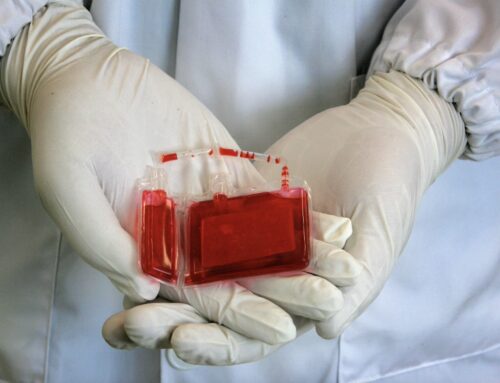Immunizations & Vaccinations
Why should someone get immunized?
There are several important reasons why someone should get immunized or vaccinated:
- Protection against serious diseases: Vaccines are designed to protect individuals from potentially life-threatening diseases, such as measles, polio, influenza, hepatitis B, and others. Immunization helps build immunity and prevent the contraction and spread of these diseases.
- Herd immunity: When a significant portion of the population is vaccinated, it creates “herd immunity,” which provides protection for those who cannot be vaccinated due to medical reasons, such as newborns, individuals with weakened immune systems, or those with certain allergies.
- Prevention of outbreaks: Widespread vaccination coverage helps prevent the resurgence and outbreaks of diseases that were once common but have been largely controlled or eradicated in many parts of the world, such as smallpox and polio.
- Safer than the disease: Vaccines are rigorously tested for safety and efficacy before being approved for public use. The risks associated with vaccines are minimal compared to the potential complications and long-term effects of contracting the diseases they prevent.
- Reduced healthcare costs: Immunization can significantly reduce healthcare costs by preventing hospitalizations, medical treatments, and long-term care associated with vaccine-preventable diseases.
- Protection for vulnerable groups: Immunization helps protect vulnerable populations, such as the elderly, young children, and individuals with compromised immune systems, who are at higher risk of complications from certain diseases.
- Personal and public health: Vaccines not only protect individual health but also contribute to the overall public health by reducing the burden of preventable diseases on healthcare systems and communities.
- Travel requirements: Many countries require proof of certain vaccinations for travelers entering or leaving their borders to prevent the spread of diseases across international borders.
While no medical intervention is 100% risk-free, the benefits of vaccination in protecting individuals and communities from serious and potentially deadly diseases far outweigh the potential risks associated with vaccines.
Which immunizations do my children need?
Children need to receive a series of immunizations to protect them from various serious diseases. The recommended immunization schedule from the Centers for Disease Control and Prevention (CDC) and the American Academy of Pediatrics (AAP) is as follows:
Birth:
- Hepatitis B (HepB) vaccine
2 Months:
- Diphtheria, Tetanus, & Pertussis (DTaP) vaccine
- Haemophilus influenzae type b (Hib) vaccine
- Pneumococcal conjugate (PCV13) vaccine
- Polio (IPV) vaccine
- Rotavirus (RV) vaccine
4 Months:
- DTaP vaccine
- Hib vaccine
- PCV13 vaccine
- IPV vaccine
- RV vaccine
6 Months:
- DTaP vaccine
- Hib vaccine
- PCV13 vaccine
- IPV vaccine
- Influenza (flu) vaccine (annual dose starting at 6 months)
12-15 Months:
- Hib vaccine
- PCV13 vaccine
- Varicella (chickenpox) vaccine
- Measles, Mumps, Rubella (MMR) vaccine
18 Months:
- Hepatitis A (HepA) vaccine (2 doses given 6 months apart)
4-6 Years:
- DTaP vaccine
- IPV vaccine
- MMR vaccine
- Varicella vaccine
11-12 Years:
- Tetanus, Diphtheria, & Pertussis (Tdap) vaccine
- Human Papillomavirus (HPV) vaccine (2 or 3 doses depending on age)
- Meningococcal conjugate (MenACWY) vaccine
16 Years:
- Meningococcal B (MenB) vaccine
It’s important to follow the recommended schedule and get all the necessary doses for full protection. Some additional vaccines may be recommended based on risk factors, medical conditions, or state requirements. Consult with your pediatrician or healthcare provider for personalized advice on immunizations for your children.
What about immunization side effects?
Like any medication, vaccines can potentially cause side effects, but the majority are mild and go away within a few days. Serious side effects are extremely rare. Here’s an overview of common side effects associated with immunizations:
Mild Side Effects:
- Pain, redness, or swelling at the injection site
- Low-grade fever
- Fussiness or irritability
- Headache
- Fatigue or tiredness
- Muscle aches
These mild side effects are normal signs that the body is building immunity and should resolve on their own within a few days.
Moderate Side Effects:
- High fever (over 102°F/39°C)
- Severe headache
- Vomiting
- Rash
- Seizure caused by fever
If these effects occur, you should contact your healthcare provider promptly.
Severe Side Effects (Extremely Rare):
- Severe allergic reaction (anaphylaxis)
- Long-lasting seizures, coma, lowered consciousness
- Permanent brain damage
Severe side effects are estimated to occur about once for every million vaccine doses. They require immediate medical attention.
It’s important to note that the benefits of vaccination greatly outweigh the potential risks of side effects. Most side effects are mild and resolve quickly, while the diseases that vaccines prevent can lead to serious complications, long-term health issues, or even death.
To minimize the risk of side effects:
- Follow the recommended vaccination schedule
- Inform your provider about any allergies or medical conditions
- Monitor your child after vaccination and seek medical care if any concerning symptoms arise
Healthcare providers are trained to recognize and manage any potential side effects. By being informed and following guidelines, you can help ensure your child receives the protection of immunizations safely.
Do vaccinations cause autism?
No, there is no scientific evidence that vaccinations cause autism. This claim has been thoroughly investigated and disproven by multiple large-scale studies conducted by reputable health organizations and researchers worldwide.
The hypothesis linking vaccines to autism originated from a small, flawed study published in 1998 by Andrew Wakefield. This study has been discredited and retracted by the journal that published it due to serious methodological flaws and ethical violations.
Numerous large, well-designed studies involving hundreds of thousands or millions of children have found no link between vaccines and autism spectrum disorder (ASD). Some of the major studies include:
- A study published in the New England Journal of Medicine in 2002, involving over 500,000 children, found no association between the measles, mumps, and rubella (MMR) vaccine and autism.
- A study published in Pediatrics in 2010, involving over 1 million children, found no evidence that the MMR vaccine or vaccines containing thimerosal (a mercury-based preservative) increased the risk of autism.
- A systematic review published in the Cochrane Database of Systematic Reviews in 2020, which analyzed data from over 1.2 million children, found no credible evidence of a link between vaccines and autism.
- The Centers for Disease Control and Prevention (CDC), the World Health Organization (WHO), and numerous other health authorities have extensively reviewed the scientific evidence and consistently concluded that vaccines do not cause autism.
Autism spectrum disorder is a complex neurodevelopmental disorder with a strong genetic component and multiple potential contributing factors, but vaccines have been ruled out as a cause. The symptoms of autism often become apparent around the same age when children receive many routine vaccinations, which may have led to the mistaken belief that vaccines were the cause.
It’s crucial to rely on credible, scientifically established information from reputable health organizations and medical experts when it comes to the safety and effectiveness of vaccines.




